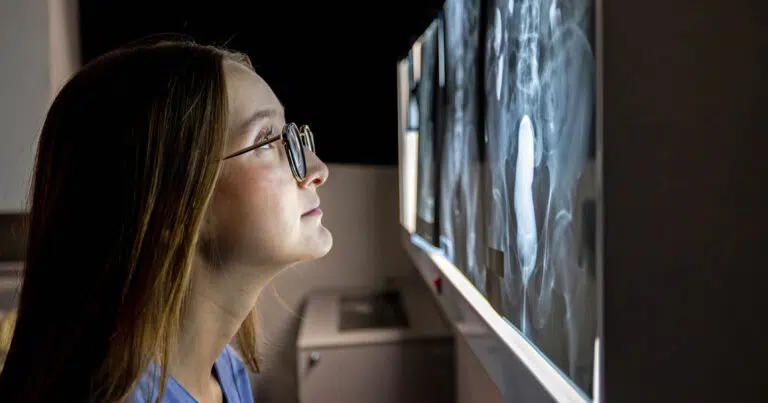Cardiac Sonographer Career Guide
Looking for a different career guide?
Overview
A Cardiac Sonographer, also known as an Echocardiographer, is a specialized healthcare professional who uses ultrasound technology to create images of the heart. These images are crucial for diagnosing and monitoring heart conditions, allowing physicians to assess cardiac function and provide appropriate treatment.
Essential Job Functions:
Cardiac Sonographers perform echocardiograms, which involve using ultrasound equipment to capture real-time images of the heart's structure and function. They work closely with cardiologists and other medical professionals to analyze these images, identify abnormalities and contribute to accurate diagnoses.
Education
To become a Cardiac Sonographer, individuals typically need to complete an associate degree or a formal training program in diagnostic medical sonography with a focus on echocardiography. Accredited programs are offered by community colleges, vocational schools and universities.
Qualifications

Skills
Staff and Travel Successful Cardiac Sonographers possess a combination of technical skills related to operating ultrasound equipment and analyzing images, as well as strong communication skills to interact with patients and medical teams effectively.
Responsibilities
Cardiac Sonographers perform echocardiograms, stress echocardiograms and transesophageal echocardiograms. They also ensure patient comfort, maintain accurate records and collaborate with physicians to provide comprehensive patient care.
Salary Insights
The average salary for a Cardiac Sonographer is $2,373.43 per week.
Last updated on March 23, 2025. Based on active jobs on Vivian.com.
Pros & Cons
Becoming a Cardiac Sonographer offers several advantages. It's a specialized field that plays a crucial role in cardiovascular healthcare, contributing to accurate diagnoses and treatment plans. The job outlook is positive, with increasing demand for cardiac imaging services. Additionally, Cardiac Sonographers often enjoy a stable work schedule and the opportunity to work in various healthcare settings.
However, there are challenges to consider. The role may involve standing for extended periods and working closely with patients who may be dealing with serious medical conditions. The fast-paced nature of healthcare settings and the potential for exposure to contagious diseases are also factors to bear in mind.
In conclusion, becoming a Cardiac Sonographer requires completing an accredited education program, gaining clinical experience and obtaining professional certification. The role offers the satisfaction of contributing to patient care and the opportunity to work in a specialized and in-demand field. While it comes with challenges, the rewards of
Some of the content on this page was enhanced using artificial intelligence.
Join over 1 million healthcare workers that are getting a head start with Vivian.
Join Vivian





